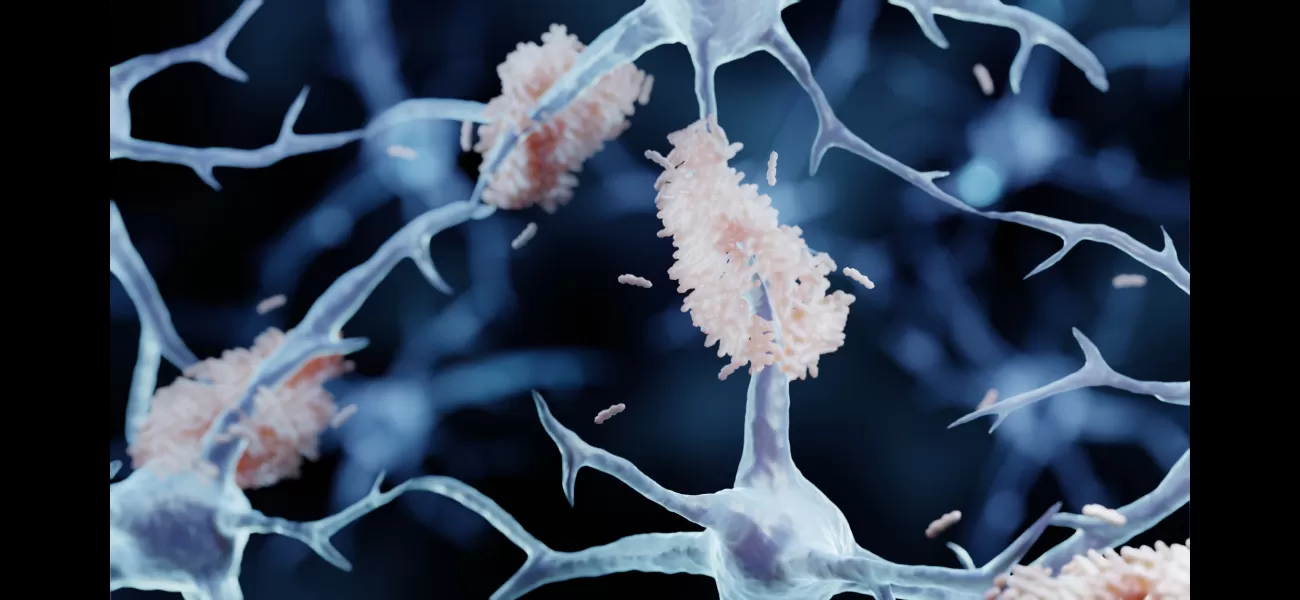New potential treatment for Alzheimer's disease using nasal spray to remove harmful proteins from the brain.
Global disease affects millions.
July 12th 2024.

Imagine a world where a simple nasal spray could offer hope to millions of people suffering from Alzheimer's disease, the most common form of dementia. With over 940,000 people affected in the UK alone, and that number expected to nearly double every 20 years, finding a solution is crucial. While the exact causes of Alzheimer's are still a mystery, scientists have been studying the build-up of misfolded proteins, called amyloid plaques, between neurons in the brain. These plaques disrupt signals along brain cells, leading to cognitive decline.
But now, a team from the University of Texas Medical Branch has made a groundbreaking discovery. They have developed a specialized antibody, called TTCM2, that targets and clears these harmful tau proteins. And the best part? It can be delivered directly to the brain through a nasal spray. No more relying on drugs delivered through the bloodstream and struggling to cross the blood-brain barrier. This new approach, known as intranasal administration, allows for a more direct and non-invasive route.
The team tested their nasal spray on mice with tau build-ups similar to those found in humans. They were amazed to find that just one spray was enough to clear the plaques and improve cognitive function. Not only that, but it also increased levels of beneficial proteins that aid in brain cell communication. Lead author Dr. Rakez Kayed expressed excitement about the potential of this new method, saying, "This nasal spray approach opens new avenues for non-invasive delivery of tau therapeutic antibodies directly to the brain, and it holds promise for many neurodegenerative diseases."
However, as with any new treatment, more research is needed to ensure its safety and effectiveness in humans. The team at UTMB plans to conduct further trials before moving on to human testing. First author Sagar Gaikwad noted, "This advancement could significantly impact the treatment strategies for Alzheimer's and related tauopathies, offering new hope for millions of patients suffering from these debilitating conditions."
In the past, drugs were delivered to the brain through the bloodstream, but this was not always effective. With the nasal spray approach, the antibody can be directly delivered to the brain without any interference. This breakthrough could revolutionize the treatment of Alzheimer's and other neurodegenerative diseases. Imagine a future where a simple spray could help millions of people regain their cognitive function and improve their quality of life. The possibilities are truly exciting, and the team at UTMB is eager to continue their research and bring this potential solution to those in need.
But now, a team from the University of Texas Medical Branch has made a groundbreaking discovery. They have developed a specialized antibody, called TTCM2, that targets and clears these harmful tau proteins. And the best part? It can be delivered directly to the brain through a nasal spray. No more relying on drugs delivered through the bloodstream and struggling to cross the blood-brain barrier. This new approach, known as intranasal administration, allows for a more direct and non-invasive route.
The team tested their nasal spray on mice with tau build-ups similar to those found in humans. They were amazed to find that just one spray was enough to clear the plaques and improve cognitive function. Not only that, but it also increased levels of beneficial proteins that aid in brain cell communication. Lead author Dr. Rakez Kayed expressed excitement about the potential of this new method, saying, "This nasal spray approach opens new avenues for non-invasive delivery of tau therapeutic antibodies directly to the brain, and it holds promise for many neurodegenerative diseases."
However, as with any new treatment, more research is needed to ensure its safety and effectiveness in humans. The team at UTMB plans to conduct further trials before moving on to human testing. First author Sagar Gaikwad noted, "This advancement could significantly impact the treatment strategies for Alzheimer's and related tauopathies, offering new hope for millions of patients suffering from these debilitating conditions."
In the past, drugs were delivered to the brain through the bloodstream, but this was not always effective. With the nasal spray approach, the antibody can be directly delivered to the brain without any interference. This breakthrough could revolutionize the treatment of Alzheimer's and other neurodegenerative diseases. Imagine a future where a simple spray could help millions of people regain their cognitive function and improve their quality of life. The possibilities are truly exciting, and the team at UTMB is eager to continue their research and bring this potential solution to those in need.
[This article has been trending online recently and has been generated with AI. Your feed is customized.]
[Generative AI is experimental.]
0
0
Submit Comment





